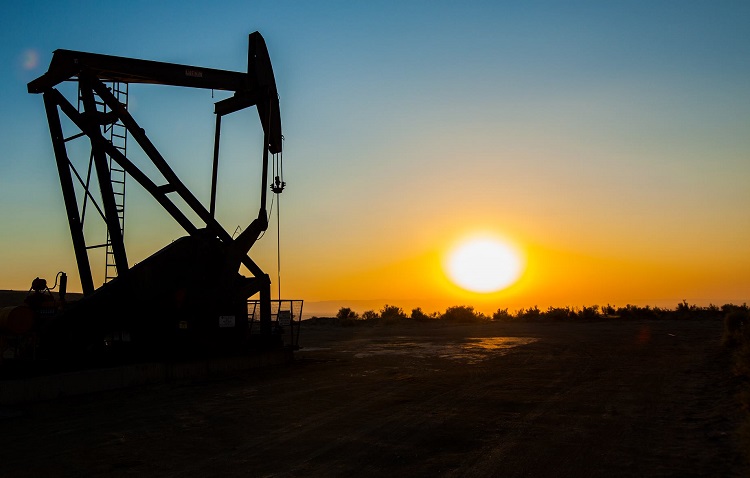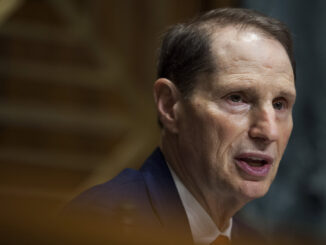
Energy News Beat Contributor Note: It’s a cybersecurity breach, not a supply issue. Of course, the facts are missing in the political discourse.
The crisis was man-made — first by the ransomware attack on the systems of Colonial Pipeline that led the company to shut down its pipeline connecting Texas to New Jersey, then by a panic that led drivers to fill up out of fear the country could run out of gas.
As federal officials, executives and cybersecurity experts worked to get the pipeline up and running amid the frenzy, the long lines of frustrated drivers were the latest reminder of a country vulnerable to shocks and recalled the queues outside food banks, coronavirus testing centers and grocery stores over the past year.
“It was like vultures swarming the gas pump, just driving around in circles checking all the pumps,” said Alfonso Forte, a clerk at a Circle K north of Charlotte.
On Wednesday evening, Colonial announced that it would restart operations after discussions with the Biden administration.
We just got off the phone with #ColonialPipeline CEO. They are restarting pipeline operations today at ~5pm. More soon.
— Secretary Jennifer Granholm (@SecGranholm) May 12, 2021
Meanwhile, Colonial and its cybersecurity consultants were working to secure its servers, having decided not to pay a ransom demanded by foreign hackers, according to two people familiar with the matter.
In North Carolina, 65 percent of stations were out of gas Wednesday afternoon, according to GasBuddy. More than 43 percent were out in Georgia, South Carolina and Virginia.
The national average for a gallon of gas surpassed $3 for the first time since 2014, according to AAA. Governors in Virginia, North Carolina, Georgia and Florida have declared states of emergency.
There could be unintended consequences.
“The states of emergency allow the system to recover. They’re meant to repair the system, not cause alarm,” said Jeff Lenard, a vice president of the National Association of Convenience Stores.
The panic buying and price hikes have been seized on by some Republicans who tried to tie them to the Biden administration’s environmental policies. House Minority Leader Kevin McCarthy (R-Calif.) and others have said the crisis shows the folly of canceling the Keystone XL pipeline, though that project was proposed to carry crude oil and can be duplicated by rail transport.
Colonial Pipeline said it could take several days to get the multistate mess straightened out. And if the panic buying continues, that will further extend the debacle, said Ryan Streblow, interim president of National Tank Truck Carriers, a trade association.
Colonial runs 5,500 miles of pipeline between Texas and New Jersey and supplies the East Coast with nearly half the gasoline it uses, as well as jet fuel and heating oil. It was shut down Friday when the company realized its computers had been subject to a ransomware attack. The smaller Plantation pipeline extends from the Gulf to outside Washington and remains in service. Two refineries, in Delaware and New Jersey, also continue to operate with crude that’s shipped to them by sea and rail.
Not only is gasoline in short supply where it’s needed, but so are the truckers who deliver it to service stations. The country as a whole has about 10 percent fewer tanker drivers than it did before the pandemic, Streblow said. “And you magnify that challenge when you have a disruption in the supply chain.”
In Atlanta on Wednesday, it rained steadily as drivers hunted for gas across the metro area. A Kroger gas station in Sandy Springs, north of Atlanta, ran out at 6:30 a.m. after getting a shipment just the day before. The station was hoping for another shipment Friday or Saturday — Sunday at the latest.
The station looked forlorn. Grocery carts and orange cones blocked the pumps to alert customers not to bother.
“We blocked off the entrances to the gas station because people are coming up in here and they’re wondering do we have gas, and I’m like, ‘Yeah, we don’t,’” said Aubree Grimsley, 25, who works the kiosk attached to the gas station. He was restocking snacks because he had little else to do or sell.
“There’s nothing you can do about it,” he said. “I can’t fix it.”
At a Costco gas station not far away, a tanker from KLC Petroleum Transport was filling the underground tanks as motorists waited in their idling cars.
Ethan Spear, who works for KLC, and may be one of the most popular people in Atlanta right now, was delivering the gas. Spear said it takes one to two hours to fill the big truck in Doraville, northeast of Atlanta, because the lines are so long on that end.
“It’s been a crazy experience,” Spear said. “We come here. We’ve gotta fight through the traffic in the parking lot.”
Rob Underwood, president of the Energy Marketers of America, said that gas stations were selling several days’ worth in a few hours, directly attributable to panic buying.
“There’s a lot of tension out there at the pumps,” Lenard said, and he argued that that’s a reason not to limit sales by rationing — many people are already angry enough about mask requirements. “It feels like it’s best really to stress that people need to use common sense,” he said.
But gas stations are dealing with what researchers in behavioral economics and neuroscience have labeled “the scarcity mind-set,” said Camelia M. Kuhnen, professor of finance at the Kenan-Flagler Business School at the University of North Carolina.
“When some resource is scarce, even just in the short term, people tend to get tunnel vision and fixate on how they can get more of that specific resource,” she said. “Basically, the brain focuses on solving very narrowly the problem of ‘how do I get more of the thing that is scarce?’”
Kuhnen said that for motorists in North Carolina and other states experiencing shortages, “the broader picture that is not seen by people lining up for gas for hours is that in a couple of days, the supply is expected to be restored close to normal levels. This scarcity problem will go away, and in a week’s time, we won’t even think about it anymore.”
The city of Charlotte has suspended nonessential use of city vehicles and is encouraging its employees to work remotely to save fuel. City officials don’t foresee an impact on police, fire, waste pickup or other essential services, city spokesperson Cory Burkarth said.
Susan Grissom, a chief analyst with the American Fuel and Petrochemical Manufacturers trade association, said that Gulf Coast refineries are continuing to operate because, once they are closed down, it can take a significant amount of time to start up again. She called on the Biden administration to offer a blanket Jones Act waiver to speed up deliveries by sea.
Colonial Pipeline has no plan at this point to pay a ransom to decrypt data files, said two people familiar with the matter. Rather, they are working with the cybersecurity firm Mandiant to restore the data from backup systems where possible and rebuild systems where backups are unavailable, said the people, who spoke on the condition of anonymity because the matter is under investigation.
The hackers, a criminal group thought to operate mostly out of Russia, also appeared to be readying to extort Colonial by stealing data that it could later threaten to release unless a fee were paid. But Mandiant quickly traced the stolen data to a server owned by a New York hosting firm, which over the weekend shut the server down, preventing any data from flowing to the hackers, according to several people familiar with the matter.
With that extortion avenue sealed off and with Mandiant helping to restore data and rebuild systems, “there’s no reason to make the payment,” one of the people said.
At Cashion’s Quik Stop, a local gas and food mart with four locations north of Charlotte, Scott Halsey, the company’s vice president, said he couldn’t get regular octane, so he bought a higher-octane fuel and sold it for the price of regular, “just so we had something to pump.”
It was gone by lunch. “We’re making no money,” he said.
As he talked, customers were still pulling up to empty gas pumps, hopeful because they saw motorists pumping the one fuel type still available — diesel. Halsey noted one customer who’d removed a plastic bag from a nozzle. “He’s trying to pump gas,” Halsey said.
The would-be customer gave up and drove off. Halsey headed to the pump and replaced the bag.
“We will take anything at this point to alleviate the situation,” said Underwood, of the energy marketers group. “But we have a reliable system. Yes, it’s down now. It’s going to be back up and running.”
Taylor Telford and Hamza Shaban in D.C., Pam Kelley in Charlotte, and Mark Shavin in Atlanta contributed to this report.



